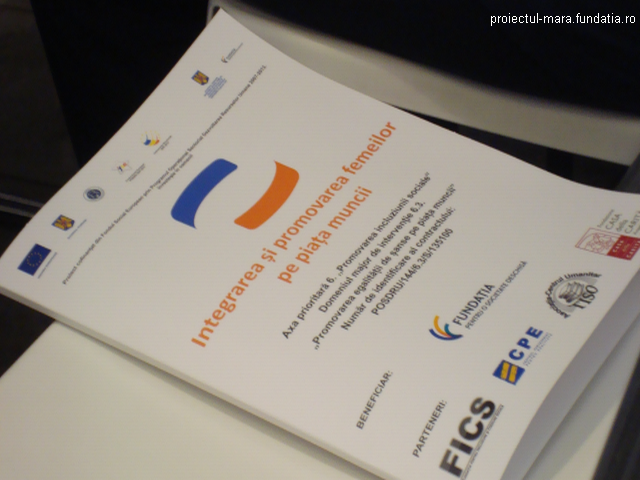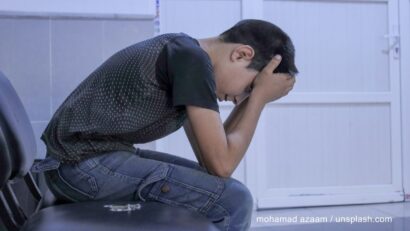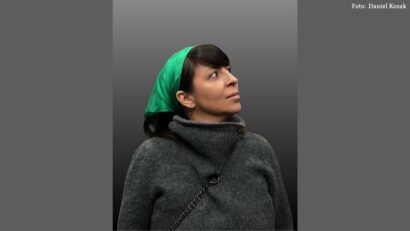Gender Stereotypes in Literature and Education
Still present in todays EU economies and societies, gender stereotypes on the labor market originate most often than not in some common stereotypes found in our communities.

România Internațional, 28.01.2015, 13:39
Still present in today’s EU economies and societies, gender stereotypes on the labor market originate most often than not in some common stereotypes found in our communities. But how does society perceive these stereotypes on the role of women and men? Are they disseminated through education and certain cultural models? These are some of the questions that the study on gender stereotypes in Romanian culture and day-to-day life, included in the project “Integration and promotion of women on the labor market” is trying to answer. The study, conducted by the Open Society Foundation, enjoyed European financing under the Sectoral Operational Programme Human Resources Development. It focused on four main directions — film, theatre, literature and media — and tried to establish if gender stereotypes have cultural roots.
Head of the Open Society Foundation, Mircea Vasilescu, tells us more about it:
Mircea Vasilescu: “The hypothesis we started from is basically correct: our way of regarding women and womanhood is based on a ‘cultural heritage’. Of course, the media plays a very important role, as it reinforces and exploits certain stereotypes about women for rating. And I’m referring to tabloid media in particular.”
Except for the media, education, in turn, seems to be a source of stereotypes, often highlighted through the analysis of literary works presented to students. Mircea Vasilescu, this time as a literary critic and historian, has studied the way in which certain female characters are described by literary works in school.
Mircea Vasilescu: “I’ve checked the manner in which certain female characters are presented in literature works studied in school and presented in textbooks, books of literary criticism and on literature-related websites. And I wonder if after graduation, former students will start applying in real life the ideas they learned in school about certain female characters, by using a stereotyped way of thinking.”
The answer is positive, although many of the interpretations found in textbooks about female figures are neither precise, nor favorable to those characters or the women representing them.
A new woman archetype has been promoted in the media in recent years, more exactly in certain entertainment TV shows. At present, tabloid TV stations have come up with a new type of woman: the live show assistant, a must in the entertainment shows, whose role is to play the fool for the audience’s amusement. When it comes to more serious shows, however, the presence of women is scarce.
Mircea Vasilescu: “There are very few women in the political and social TV talk-shows. There are even fewer women invited as experts in certain TV shows. Usually, when that happens, there are the same women invited, coming mostly from the political field.”
Parents also play an important role in the propagation of stereotypes. Livia Aninosanu, coordinator of the Partnership for Equality Centre, a partner in the project “Integration and Promotion of Women on the Labor Market”, believes that, by socializing, children learn very quickly what’s natural for boys and for girls to do in society.
Livia Aninosanu: “We encourage certain emotions in boys and we discourage others in girls. Boys are often told: ‘Don’t cry, you’re not a girl’. The emotional language is rather restricted for boys, from an early age. They are allowed to express their negative emotions through fury, but they are discouraged to express feelings like fear or timidity. When it comes to girls, they are not encouraged to express their fury, to say ‘No’ and to set clear limits. On the other hand, they are allowed to be fragile. So we are already assigning our children the roles they will eventually play within society, inducing them the idea that boys are strong and girls are weak.”
Gender-specific toys also play an important role in predetermining behaviors.
Livia Aninosanu: “In every children’s store we find girls’ areas and boys’ areas. Girls’ areas can be easily identified by the pink colors, and usually include toys reproducing roles that girls will carry out later in life: miniature kitchens, washing machines, and miniature irons. Boys, on the other hand, have to choose among games allowing them to explore the space, as well as cars and guns. There are very few gender-neutral games. I believe there are many situations where children would want to pick something else. Our work with kindergarten teachers has proved that boys are afraid to play with what is considered to be girls’ toys, such as dolls, or get involved in a girl’s game. A boy’s simple preference to play with a doll raises fears among adults. That boy would be very quickly corrected.”
What certainly needs correction is the adults’ behavior, experts in gender equality say. Children should not be educated in keeping with some gender restrictions, but more likely encouraged to experiment and handle a wide variety of situations.






























